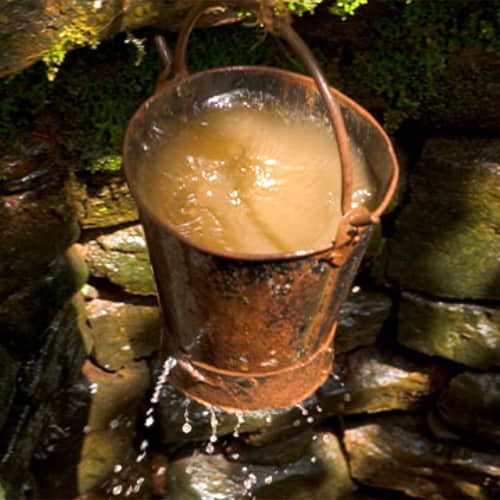Why Is Poverty Reduction Important?
For many people, “Why is poverty reduction important?” has a simple answer: Poverty leads to suffering, and we should want to help those who are in need. Indeed, millions all over the world do not have access to necessities, like clean drinking water, and that is something that should be addressed. Women and children in developing countries must walk an average of 6 kilometers― about 3.7 miles―to retrieve water from often polluted and diseased sources.[1] They travel the distance barefoot or in sandals, and many are forced to make the trek more than once a day. Dangerous landscapes, thorny plants, wild animals or robbers could lie between them and the water. A 20-liter jug of water can weigh up to 44 pounds when full, and that is not sufficient for a family. The bare minimum water supply for one person for a day is considered 15 liters, which is why many trips back and forth are required.[2]
Every day—rain or shine, hot or cold—Kylan and his wife, Esmae, needed to fetch water to drink, wash clothes, clean dishes and take baths. It was a long walk to the water hole, and it became treacherously slippery in the rainy season. But every day, it must be done. They woke up before sunrise to get water, worked all day and then went to fetch water again after work, no matter how tired they were. Kylan and Esmae worked hard to support their family, but the water often added to their struggle. Insects, frogs and bacteria polluted the water hole, and despite attempts to filter it, the water was far from pure, leading to upset stomachs, fevers, skin diseases or other ailments. When a family member contracted a waterborne illness, Kylan and Emae’s hard-earned money had to go toward treatment.
Thus, a cycle emerged: they spent hours fetching water, trying to get ahead in life, but impure water caused illness, using up time, energy and resources. Kylan and Esmae were stuck in this endless circle, with no way out.
Then, a GFA pastor in Kylan and Esmae’s village announced that he had requested a Jesus Well. One villager donated his land, and within a few months, it was in place. Finally, the villagers had good, clean water within a short walk from home. Kylan and Esmae no longer had to make the long journey before and after work each day, and the clean water improved the family’s health and happiness.[3]
Click here, to read more about this article.
Click here, to read more blogs in Gospel for Asia.Com


Comments
Post a Comment